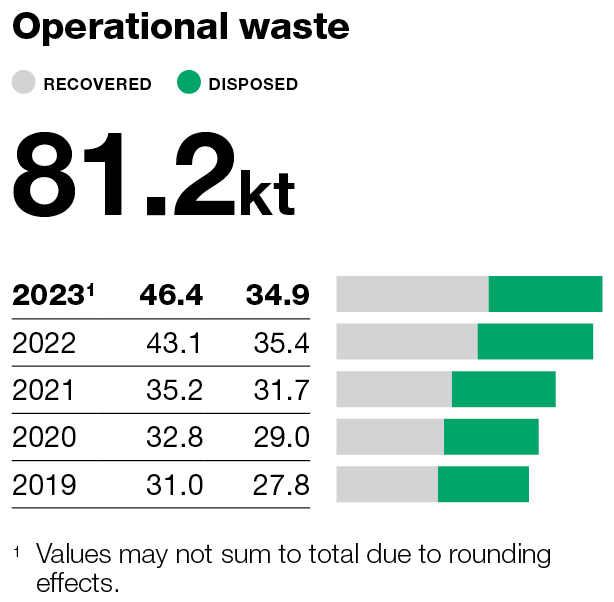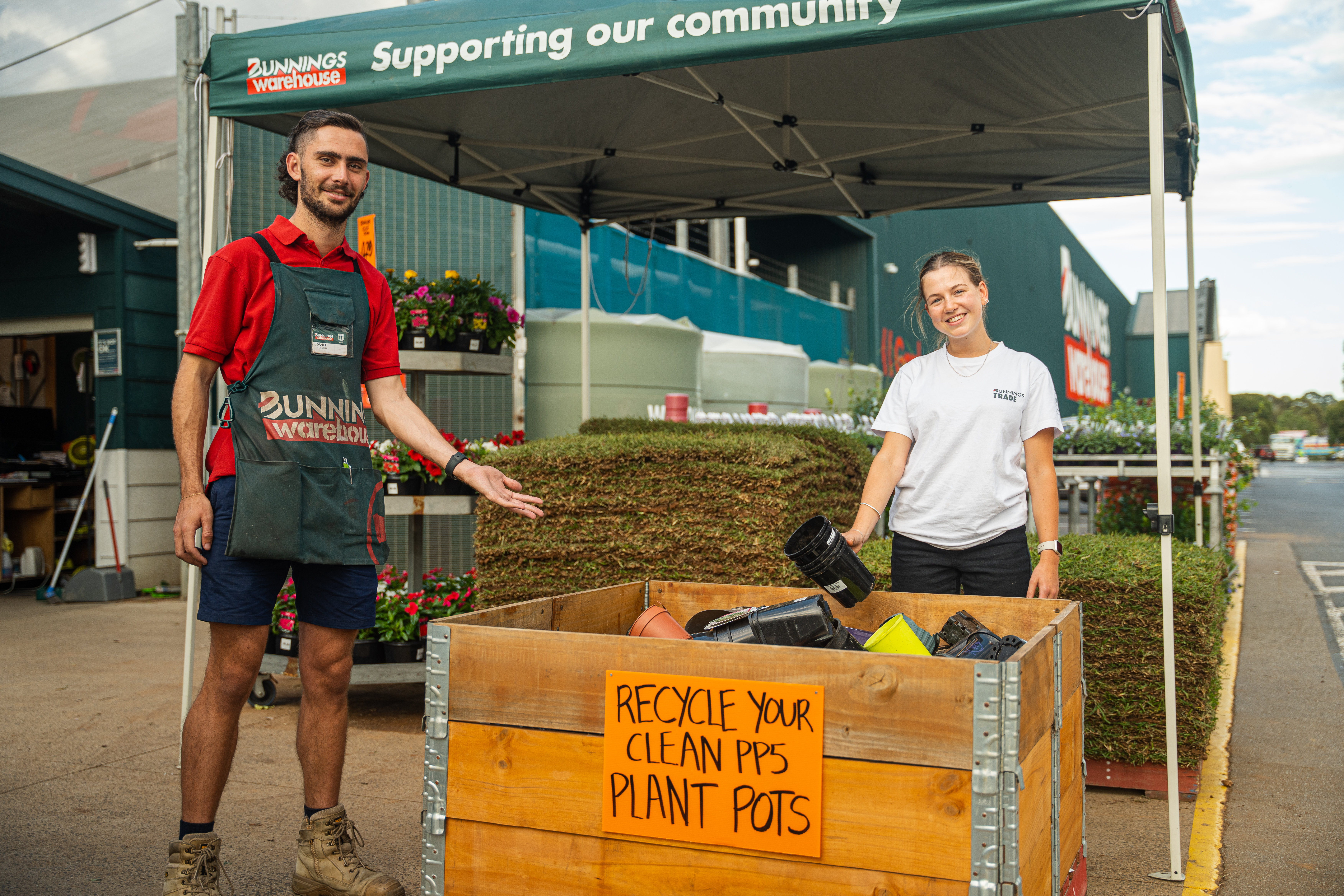
Bunnings - Circular economy
Bunnings works to reduce the environmental impact of its operations by minimising operational waste, optimising product packaging and supporting product stewardship programs that help customers live more sustainably.
Reducing operational waste and increasing resource recovery are key areas of focus for Bunnings to reduce impact on the natural environment.
During the financial year, Bunnings expanded its program of waste management by launching an internal uniform recycling program for all team members, to divert textiles from landfill. As of 30 June 2023, Bunnings diverted 57.1 per cent of its operational waste, demonstrating an improvement of 2.2 percentage points compared to the previous year due to enhanced segregation, recycling and reporting of waste.
Bunnings continued work to reduce excess product packaging, improve packaging design for recovery and reduce the use of packaging materials that are difficult for customers to recycle. As a member of the Australian Packaging Covenant Organisation (APCO), Bunnings is committed to working towards 100 per cent sustainable packaging. During the year, a training program was launched to introduce the Bunnings Sustainable Packaging Guidelines to internal teams and selected suppliers. The guidelines help to embed APCO’s sustainable packaging principles in products sold in Bunnings.
Bunnings continued to include the Australasian Recycling Label (ARL) on product packaging to help customers dispose of packaging correctly. During the year, the ARL was applied to more than 1,000 additional products in the Bunnings range.
Bunnings recognises customer interest in solutions to responsibly manage items that are complex to recycle at their end-of-life. By partnering with not-for-profit organisations and businesses, Bunnings continued to offer in-store drop off services to recycle household and power tool batteries and products with a power cord in selected stores across the network. In April 2023, Bunnings reached a milestone of 200 tonnes of household and power tool batteries collected for recycling across Australia and New Zealand. As of 30 June 2023, 240 tonnes of batteries have been collected for recycling since the program commenced in late 2021. In South Australia, more than 1,200 tonnes of e-waste were collected for recycling in partnership with Minda through the Unplug N’ Drop program, which provides ongoing work opportunities for people with a disability.
Following a successful trial in New Zealand, Bunnings introduced a plastic plant pot stewardship program across selected stores in Australia and New Zealand. The program supports the improvement of plastic packaging recycling by inviting customers to return used plant packaging made from polypropylene plastic that is difficult for many local recycling facilities to process. The program offers a circular solution by supporting customers to take them home for reuse without charge or by working with program partners to recycle the material into items such as new plastic pots.
In the year ahead, Bunnings’ focus will be to collaborate with suppliers to accelerate the use of sustainable packaging throughout the supply chain and to improve waste management and resource recovery across the Australian and New Zealand network.

